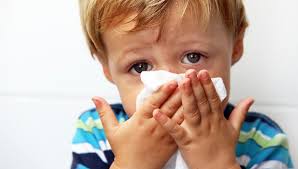Two children have already died of the flu, only a few weeks into the typical flu season, according to the Centers for Disease Control and Prevention.
Those deaths make it more imperative than ever that everyone six months of age or older, especially those with high risks of complications, get a flu vaccine.
“Flu shots are the only way to prevent influenza,” says Dr. Alan Peterson, a board member of the Partnership for Public Health. “They are not always preventative, but even if they don’t completely prevent the flu, they decrease the severity of the disease and need for hospitalization for many and decrease death in others.” Dr. Peterson also advises those over 65 to get the high-dose shot for added protection.
Last winter’s flu season was the longest in 10 years, causing an estimated 43 million illnesses, 647,000 hospitalizations, and 61,200 deaths. The 2017-2018 flu season was shorter but more fatal, causing an estimate of 49 million illnesses, 959,000 hospitalizations, and 79,400 deaths.
More than 180 children died from the flu in the 2018-2019 season, compared to 116 in the 2017-2018 season.
Although official reports show an increase in doctor visits for flu symptoms during the last month, the peak season usually occurs between December and February.
Flu symptoms may include fever, headache, fatigue, dry cough, sore throat, nasal congestion, and body aches.
There are greater risks of serious complications from the flu for older people, young children, pregnant women and people with certain health conditions like asthma, diabetes or heart disease.
CVS, RiteAid, and Walgreens pharmacies offer free walk-in flu shots with most insurance. If you are uninsured or underinsured, call the local State Health Center (1661 Old Philadelphia Pike) at 717-299-7597 to make an appointment for a free flu shot.

